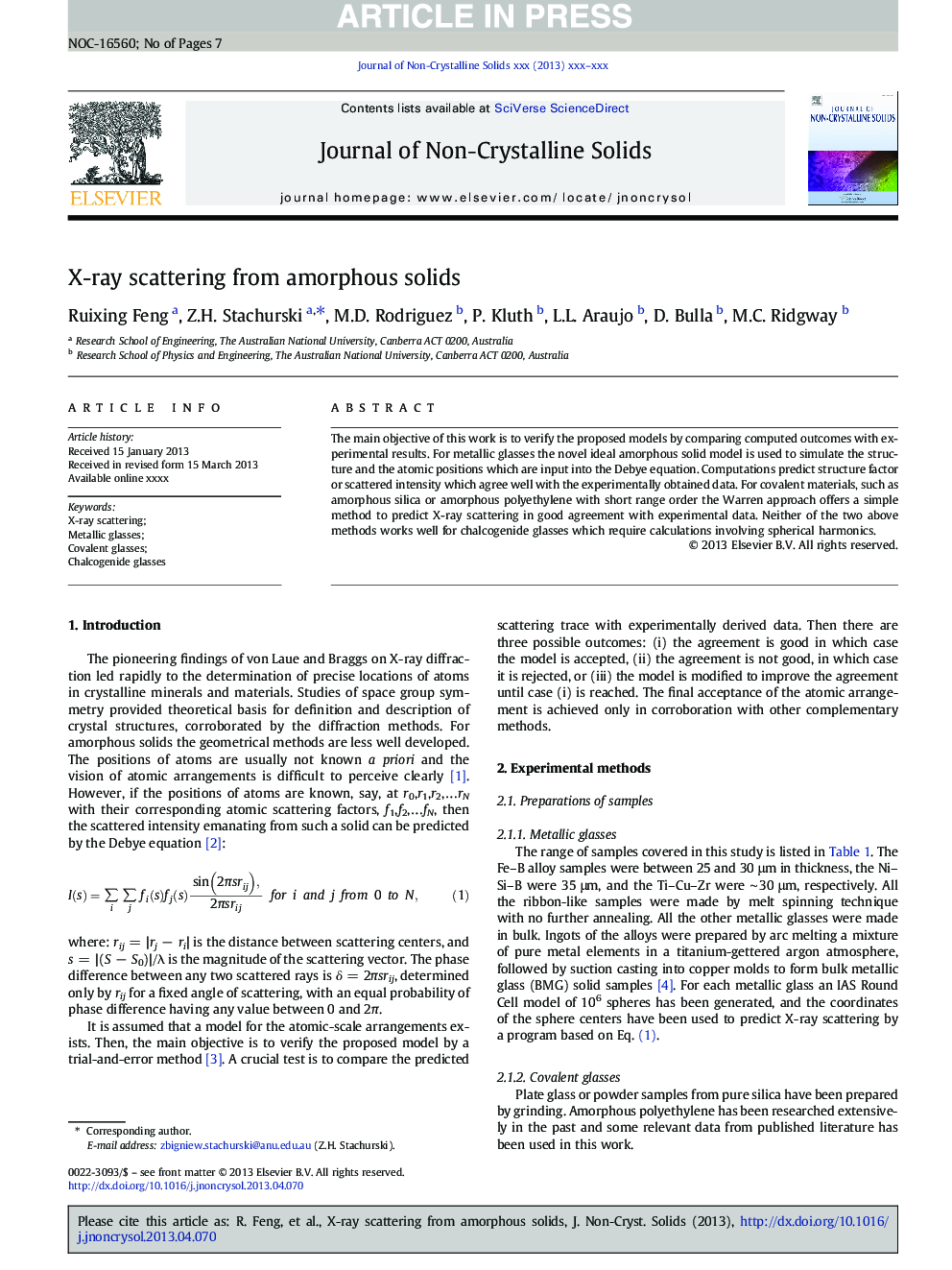| Article ID | Journal | Published Year | Pages | File Type |
|---|---|---|---|---|
| 7902590 | Journal of Non-Crystalline Solids | 2014 | 7 Pages |
Abstract
The main objective of this work is to verify the proposed models by comparing computed outcomes with experimental results. For metallic glasses the novel ideal amorphous solid model is used to simulate the structure and the atomic positions which are input into the Debye equation. Computations predict structure factor or scattered intensity which agree well with the experimentally obtained data. For covalent materials, such as amorphous silica or amorphous polyethylene with short range order the Warren approach offers a simple method to predict X-ray scattering in good agreement with experimental data. Neither of the two above methods works well for chalcogenide glasses which require calculations involving spherical harmonics.
Related Topics
Physical Sciences and Engineering
Materials Science
Ceramics and Composites
Authors
Ruixing Feng, Z.H. Stachurski, M.D. Rodriguez, P. Kluth, L.L. Araujo, D. Bulla, M.C. Ridgway,
